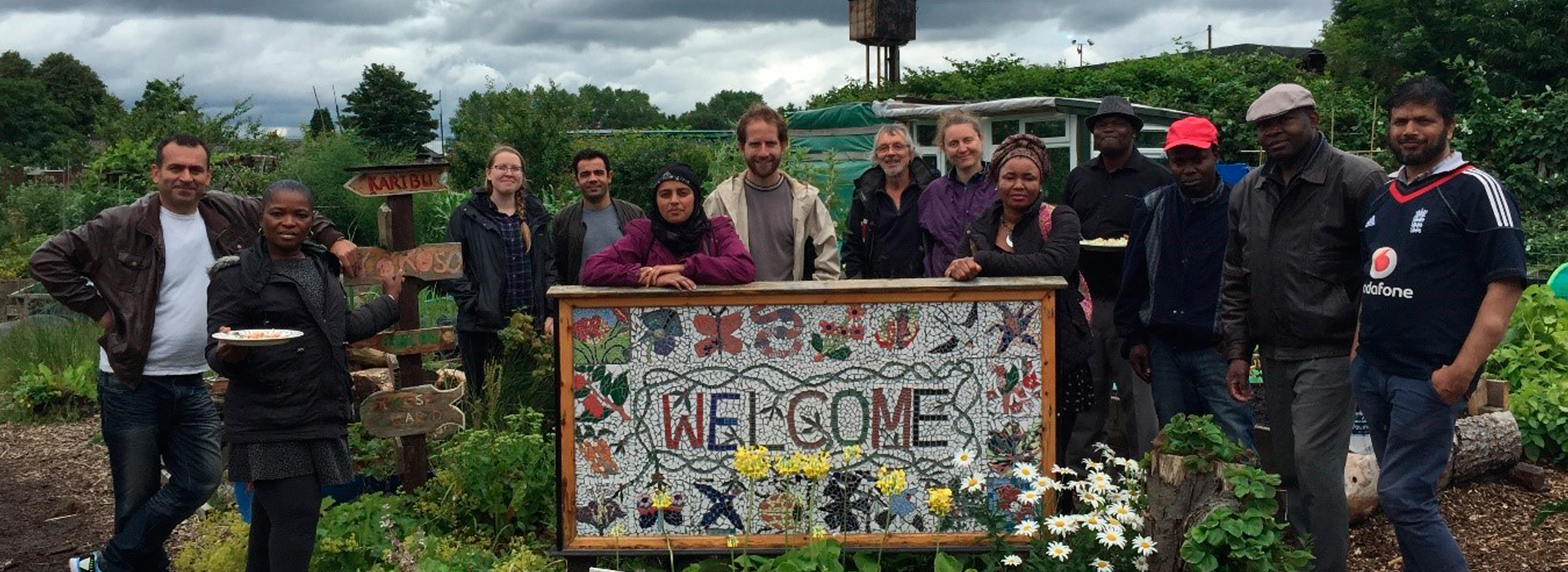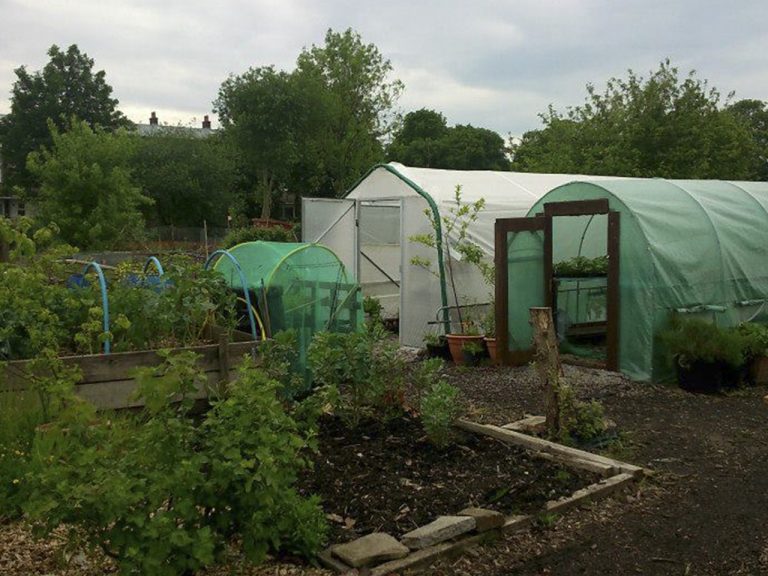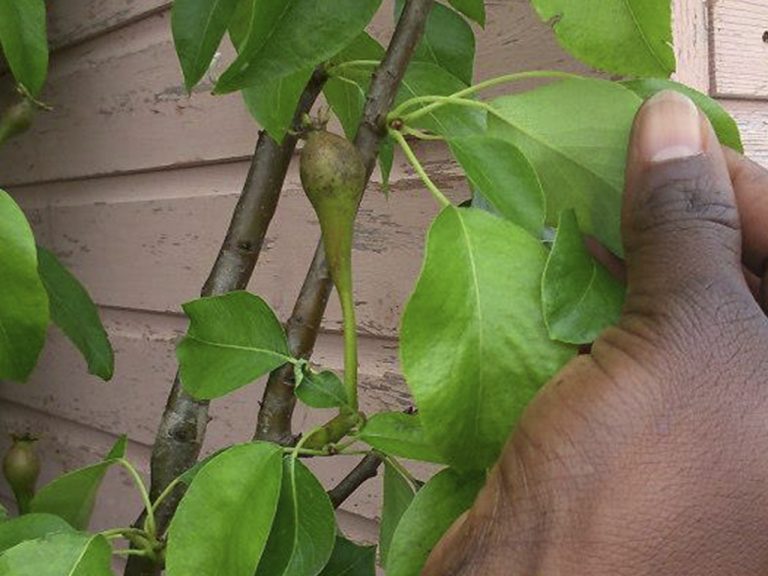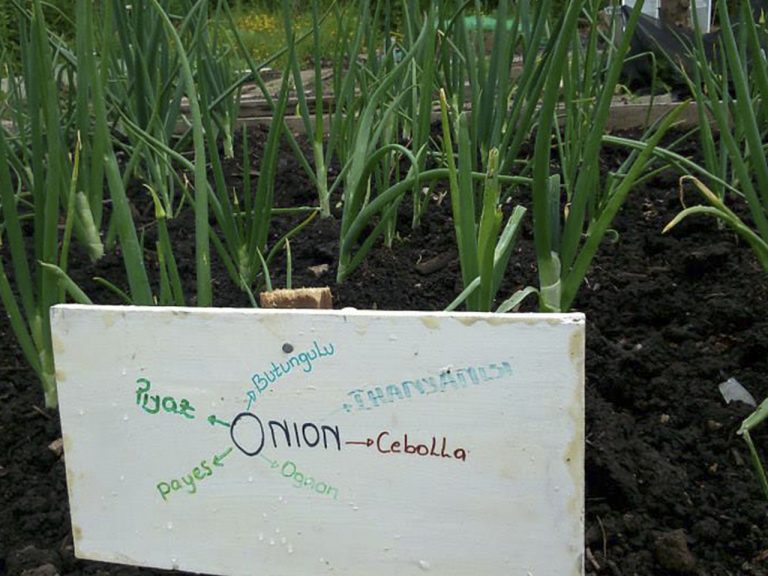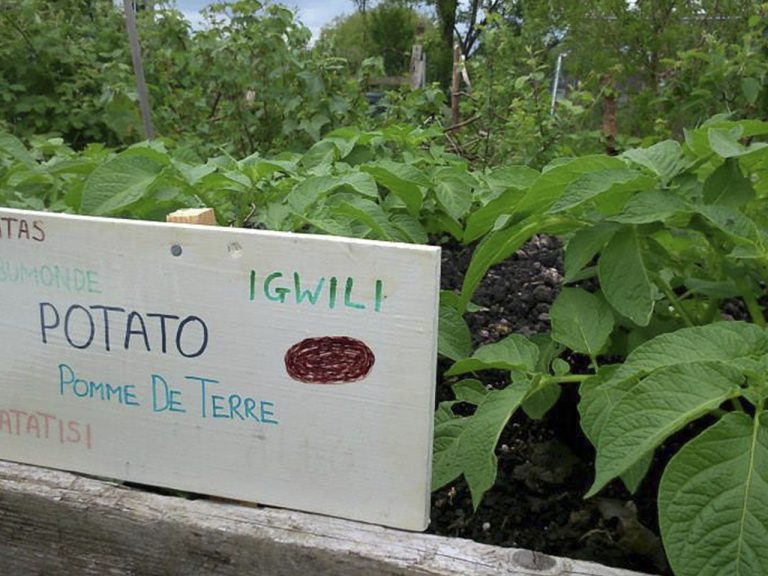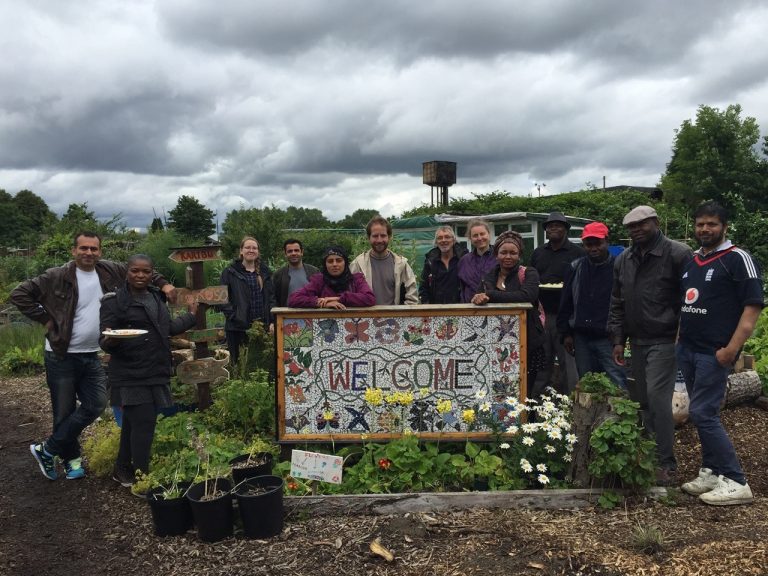Regular garden meetings & activities to promote gardening, social
& language skills.
Description of the activity
Participants carry out gardening activities, led by volunteers on the allotment plot. Working together they grow fruit and vegetables, which are then used in the group lunches. These gardening sessions take place on a weekly basis, usually involving around 15 participants and 4 volunteers. Participants are sometimes invited to lead elements of the session to help embed and share the skills and knowledge they have.
Gardening is a good activity for many reasons. It keeps people active, grows healthy food, and in many cases stimulates memories of home and childhood for people now living in an unfamiliar country.

 English
English  Deutsch
Deutsch  Español
Español  Svenska
Svenska 